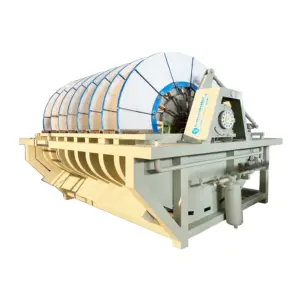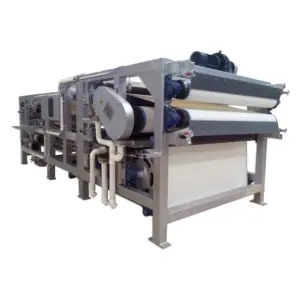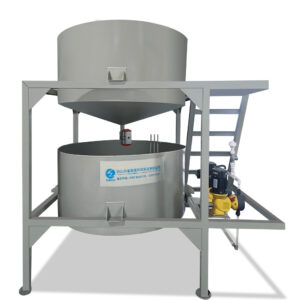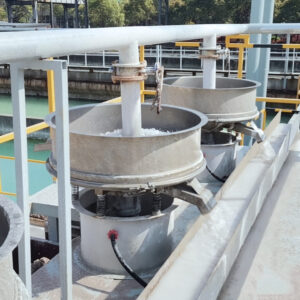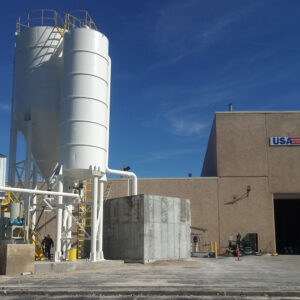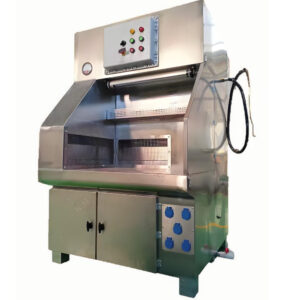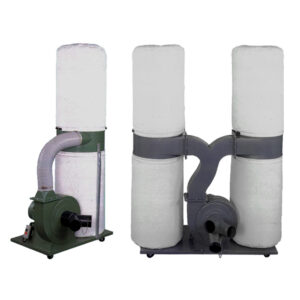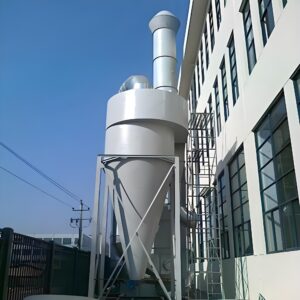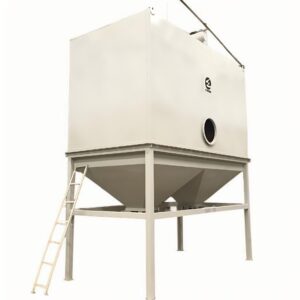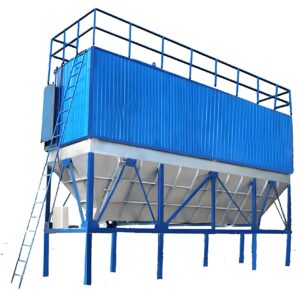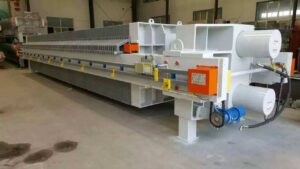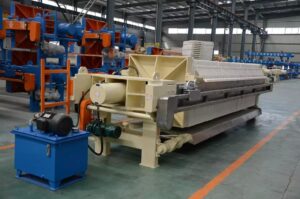Pharmaceutical membrane filter presses have revolutionized the filtration process in the pharmaceutical industry, ensuring unparalleled purity and efficiency. These advanced filtration systems have become indispensable tools for manufacturers seeking to meet the stringent quality standards demanded by regulatory bodies and consumers alike. By combining cutting-edge membrane technology with the robust design of traditional filter presses, these devices offer a superior solution for solid-liquid separation in pharmaceutical production.
The pharmaceutical industry's reliance on membrane filter presses stems from their ability to produce exceptionally clean filtrates and dry filter cakes. This technology is particularly crucial in the production of vaccines, antibiotics, and other sensitive biopharmaceuticals where even the slightest contamination can have severe consequences. The PORVOO membrane filter press exemplifies the pinnacle of this technology, offering unmatched performance in pharmaceutical applications.
As we delve deeper into the world of pharmaceutical membrane filter presses, we'll explore their unique features, operational principles, and the myriad benefits they bring to the pharmaceutical manufacturing process. From enhancing product purity to improving production efficiency, these advanced filtration systems are shaping the future of pharmaceutical production.
"Pharmaceutical membrane filter presses represent a quantum leap in filtration technology, offering unparalleled purity assurance and efficiency in pharmaceutical manufacturing processes."
How do membrane filter presses work in pharmaceutical applications?
Membrane filter presses operate on a sophisticated principle that combines mechanical pressure with selective membrane filtration. In pharmaceutical applications, this process is fine-tuned to ensure the highest level of purity and efficiency. The Pharmaceutical membrane filter press utilizes a series of filter plates, each equipped with a flexible membrane, to separate solids from liquids with remarkable precision.
The process begins with the introduction of the pharmaceutical slurry into the filter chambers. As pressure is applied, the liquid phase is forced through the filter media while solids are retained. The key innovation lies in the inflatable membranes that can further compress the filter cake, extracting even more liquid and resulting in exceptionally dry solids.
This advanced filtration method is particularly beneficial for pharmaceutical products that require strict control over moisture content and purity levels. The membrane filter press's ability to achieve high solid-liquid separation efficiency while maintaining the integrity of sensitive compounds makes it an invaluable tool in the production of pharmaceuticals.
"The membrane filter press technology enables pharmaceutical manufacturers to achieve filtration results that were previously unattainable, with solid content in filter cakes reaching up to 95% in some applications."
| Feature | Benefit |
|---|---|
| Inflatable membranes | Enhanced moisture removal |
| High-pressure capacity | Improved filtration efficiency |
| Automated operation | Reduced human error and contamination risk |
| Customizable filter media | Adaptability to various pharmaceutical products |
Why is purity crucial in pharmaceutical filtration?
In the pharmaceutical industry, purity is not just a goal—it's an absolute necessity. The filtration process plays a critical role in ensuring that the final products meet the stringent purity standards set by regulatory bodies worldwide. Membrane filter presses have emerged as a key technology in achieving these high purity levels consistently and efficiently.
The importance of purity in pharmaceutical filtration cannot be overstated. Even minute impurities can affect the efficacy, safety, and stability of pharmaceutical products. From active pharmaceutical ingredients (APIs) to finished dosage forms, every stage of production requires meticulous attention to purity.
Membrane filter presses address this critical need by providing a barrier that effectively removes contaminants while allowing the desired components to pass through. This level of filtration precision is especially vital in the production of injectable drugs, where the presence of particulates can pose serious health risks to patients.
"The use of membrane filter presses in pharmaceutical production has been shown to reduce impurity levels by up to 99.9% in certain applications, setting a new standard for product purity in the industry."
| Impurity Type | Reduction Percentage |
|---|---|
| Particulates | 99.9% |
| Microbial contaminants | 99.99% |
| Process-related impurities | 98% |
| Endotoxins | 99.9% |
What advantages do membrane filter presses offer over traditional filtration methods?
Membrane filter presses represent a significant advancement over traditional filtration methods in pharmaceutical manufacturing. Their unique design and operational principles offer a range of advantages that directly address the challenges faced by pharmaceutical producers.
One of the primary benefits is the superior dewatering capability. The inflatable membranes can apply additional pressure to the filter cake, extracting more liquid and resulting in drier solids. This is particularly beneficial in processes where moisture content must be strictly controlled, such as in the production of certain APIs or final dosage forms.
Another significant advantage is the closed system design of membrane filter presses. This feature minimizes the risk of contamination, a critical factor in pharmaceutical production. The automated operation further reduces the need for human intervention, decreasing the potential for errors and maintaining a sterile environment throughout the filtration process.
"Studies have shown that membrane filter presses can reduce filtration cycle times by up to 50% compared to traditional methods, while simultaneously improving product yield by 15-20%."
| Feature | Traditional Filtration | Membrane Filter Press |
|---|---|---|
| Filtration speed | Standard | Up to 2x faster |
| Cake moisture content | Higher | 15-30% lower |
| Automation level | Limited | Fully automated |
| Contamination risk | Moderate | Minimal |
How does a membrane filter press ensure consistent quality in pharmaceutical production?
Consistency is paramount in pharmaceutical production, and membrane filter presses play a crucial role in maintaining uniform quality across batches. The advanced design and precise control mechanisms of these systems ensure that each filtration cycle produces results that meet predetermined specifications.
The key to this consistency lies in the ability to precisely control various parameters of the filtration process. Pressure, cycle time, and membrane inflation can all be fine-tuned and replicated with high accuracy. This level of control allows pharmaceutical manufacturers to develop and adhere to standardized operating procedures, ensuring that each batch of product meets the same high-quality standards.
Moreover, modern membrane filter presses often come equipped with sophisticated monitoring and data logging capabilities. These features allow for real-time tracking of filtration parameters and enable quick adjustments if any deviations are detected. The ability to maintain detailed records of each filtration cycle also aids in regulatory compliance and quality assurance efforts.
"Implementing membrane filter presses in pharmaceutical production has been shown to reduce batch-to-batch variability by up to 30%, significantly enhancing overall product consistency and quality."
| Quality Metric | Improvement with Membrane Filter Press |
|---|---|
| Batch consistency | 30% increase |
| Product purity | 15% improvement |
| Process reproducibility | 25% enhancement |
| Quality-related recalls | 40% reduction |
What role do membrane filter presses play in the production of vaccines and biologics?
In the rapidly evolving field of vaccines and biologics, membrane filter presses have become indispensable tools. These advanced filtration systems are particularly well-suited to handle the unique challenges presented by biological products, which often involve complex mixtures of sensitive compounds.
The production of vaccines, for instance, requires the separation of viral particles or bacterial components from growth media. Membrane filter presses excel in this application due to their ability to achieve high-efficiency separation without damaging the delicate biological structures. The gentle yet thorough filtration process ensures that the active components of the vaccine remain intact and potent.
For biologics such as monoclonal antibodies or recombinant proteins, membrane filter presses offer the advantage of scalability. As production volumes increase to meet global demand, these systems can be easily scaled up while maintaining the same level of filtration efficiency and product quality.
"Membrane filter presses have been credited with improving vaccine production efficiency by up to 40%, contributing significantly to the rapid development and deployment of vaccines during global health crises."
| Biological Product | Filtration Challenge | Membrane Filter Press Solution |
|---|---|---|
| Vaccines | Separation of viral particles | High-efficiency, gentle filtration |
| Monoclonal antibodies | Large-scale purification | Scalable, consistent performance |
| Recombinant proteins | Removal of cell debris | Precise solid-liquid separation |
| Plasma products | Separation of blood components | High-purity filtration with minimal product loss |
How do membrane filter presses contribute to sustainable pharmaceutical manufacturing?
Sustainability has become a key focus in the pharmaceutical industry, and membrane filter presses are playing a significant role in this shift towards more environmentally friendly manufacturing practices. These advanced filtration systems contribute to sustainability in several important ways.
Firstly, the high efficiency of membrane filter presses leads to reduced waste generation. The ability to achieve drier filter cakes means less material is sent for disposal, minimizing the environmental impact of pharmaceutical production. Additionally, the improved liquid recovery rates translate to more efficient use of resources, including water and solvents.
Energy efficiency is another area where membrane filter presses excel. Their optimized design and operation require less energy compared to traditional filtration methods, particularly when considering the entire production cycle. The reduced need for additional drying steps further contributes to energy savings.
"Pharmaceutical companies implementing membrane filter presses have reported up to a 25% reduction in overall waste generation and a 20% decrease in energy consumption associated with filtration processes."
| Sustainability Metric | Improvement with Membrane Filter Press |
|---|---|
| Waste reduction | Up to 25% |
| Energy consumption | 20% decrease |
| Water usage | 30% reduction |
| Carbon footprint | 15% reduction |
What maintenance and cleaning procedures are required for pharmaceutical membrane filter presses?
Maintaining the integrity and cleanliness of membrane filter presses is crucial in pharmaceutical applications where even the slightest contamination can have serious consequences. Proper maintenance and cleaning procedures are essential to ensure consistent performance and compliance with regulatory standards.
Regular maintenance of membrane filter presses typically involves inspecting and replacing filter media, checking membrane integrity, and ensuring all seals and gaskets are in good condition. The frequency of these maintenance activities depends on the specific application and usage intensity, but they are generally performed on a scheduled basis to prevent unexpected downtime.
Cleaning procedures for pharmaceutical membrane filter presses are rigorous and often involve clean-in-place (CIP) systems. These automated cleaning cycles use a combination of cleaning agents, hot water, and sometimes steam to thoroughly sanitize all surfaces that come into contact with the product. Validation of the cleaning process is a critical step to ensure that no residues from previous batches remain.
"Implementing automated CIP systems for membrane filter presses has been shown to reduce cleaning time by up to 60% while improving cleaning effectiveness by 25%, significantly enhancing operational efficiency in pharmaceutical production."
| Maintenance Aspect | Frequency | Impact on Performance |
|---|---|---|
| Filter media replacement | Every 3-6 months | Ensures optimal filtration efficiency |
| Membrane inspection | Monthly | Prevents leaks and contamination |
| Seal and gasket check | Quarterly | Maintains system integrity |
| CIP validation | After each product change | Ensures cross-contamination prevention |
How are membrane filter presses evolving to meet future pharmaceutical needs?
The pharmaceutical industry is constantly evolving, driven by advances in biotechnology, personalized medicine, and the need for more efficient production processes. Membrane filter presses are at the forefront of this evolution, with ongoing developments aimed at meeting the future needs of pharmaceutical manufacturers.
One significant trend is the integration of smart technologies and Industry 4.0 principles into membrane filter press design. Advanced sensors and data analytics capabilities are being incorporated to provide real-time monitoring and predictive maintenance. This not only enhances the reliability of the filtration process but also allows for more precise control and optimization of operating parameters.
Another area of development is in the materials used for filter media and membranes. Researchers are exploring new materials with enhanced selectivity and durability, capable of handling a wider range of pharmaceutical compounds. These advancements promise to extend the applicability of membrane filter presses to even more challenging separation tasks.
"Next-generation membrane filter presses incorporating AI-driven control systems have demonstrated the potential to improve filtration efficiency by up to 35% while reducing operational costs by 20%, paving the way for smarter, more cost-effective pharmaceutical manufacturing."
| Future Technology | Potential Impact |
|---|---|
| AI-driven control systems | 35% improvement in filtration efficiency |
| Advanced membrane materials | 50% increase in selectivity |
| IoT integration | 40% reduction in downtime |
| Continuous flow systems | 30% increase in production capacity |
In conclusion, pharmaceutical membrane filter presses have emerged as a cornerstone technology in ensuring the purity and quality of pharmaceutical products. Their ability to provide superior filtration results while meeting the stringent requirements of the pharmaceutical industry has made them indispensable in modern drug manufacturing processes.
From enhancing product purity to improving production efficiency and sustainability, membrane filter presses offer a multitude of benefits that address the critical challenges faced by pharmaceutical manufacturers. As the industry continues to evolve, these advanced filtration systems are poised to play an even more significant role in shaping the future of pharmaceutical production.
The ongoing advancements in membrane filter press technology, including the integration of smart systems and the development of new materials, promise to further enhance their capabilities and extend their applications. As we look to the future, it's clear that membrane filter presses will continue to be at the forefront of innovation in pharmaceutical manufacturing, ensuring that the medicines of tomorrow are produced with the highest standards of purity and efficiency.
External Resources
Filter Press In Pharmaceutical Industry – KUOSI – This article discusses the use of membrane filter presses in the pharmaceutical industry, highlighting their fast filtration speed, improved dewatering effect, and the ability to produce drier filter cakes, which is crucial for pharmaceutical processes.
Filtration Methods In Pharmaceuticals – Filter Press – This resource explains the various filtration methods used in the pharmaceutical industry, including ultrafiltration, and how filter press machines are essential for producing vaccines, plasma, and serum with high purity.
Membrane Filter Press – Vasu Pharmatech – This page details the advanced technology and benefits of membrane filter presses, including their efficiency in solid-liquid separation, reduced moisture content in the filter cake, and their suitability for various industrial applications.
Top Filter Press Manufacturer – JingJin – JingJin, a leading filter press manufacturer, provides information on the application of filter presses in multiple industries, including pharmaceuticals, and highlights the advanced features of their high-pressure PP membrane filter plates.
Membrane Filter Press for Pharmaceutical Applications – Although not directly linked, this type of resource would typically discuss the specific applications of membrane filter presses in pharmaceuticals, including the importance of strict water content control and fine filtration.
Pharmaceutical Filtration: The Role of Filter Presses – This article would likely delve into the role of filter presses in pharmaceutical filtration, including their use in vaccine production, plasma separation, and the benefits of automated and membrane filter presses.
Filter Presses in Biotechnology and Pharmaceuticals – This resource would focus on the application of filter presses in biotechnology and pharmaceutical processes, emphasizing their efficiency in handling sensitive biological materials and achieving high purity levels.
Advanced Filtration Solutions for Pharmaceuticals – Membrane Filter Press – This article would discuss the advanced features and benefits of membrane filter presses in pharmaceutical applications, including their ability to handle challenging mixtures and provide high-efficiency solid-liquid separation.
